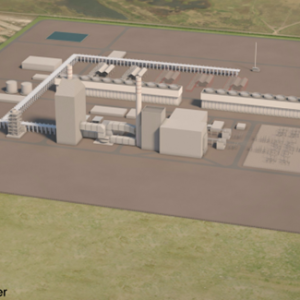-
Net Zero Teesside Power and Northern Endurance Partnership awarded development consent by UK Government
Date posted:
-
-
-
Post Author
Greg Kelsall
-
-

The planned Net Zero Teesside Power project, which aims to be one of the world’s first commercial scale gas fired power stations with CCS, took another step forward after receiving development consent from the UK’s Secretary of State for Department for Energy Security and Net Zero (DESNZ) following a recommendation from the Planning Inspectorate.
Consent was granted following a joint application between NZT Power and the Northern Endurance Partnership. NZT Power is a combined-cycle gas turbine electricity generating station with an abated capacity of up to 860 MWe output with CO2 capture. The NEP project includes a CO2 gathering network on Teesside to transport captured CO2 from industrial emitters, a CO2 gathering/booster station to receive the captured CO2 from the gathering network and from NZT Power, and the onshore section of a CO2 transport pipeline for the onward transport of the captured Net CO2 to the offshore Endurance store in the North Sea.
The granting of development consent, following several stages of consultation, comes after NZT Power was named on the Track 1 Negotiations Project List by DESNZ as part of Phase 2 of the Cluster Sequencing process for Carbon Capture Usage and Storage (CCUS). The project is now conducting negotiations for support through the relevant Business Models to enable a final investment decision in September 2024 or before.
NZT Power is a joint venture between bp and Equinor, producing fully dispatchable low carbon power and capturing up to 2 MtCO2/y.
NEP is a joint venture between bp, Equinor, and TotalEnergies, providing the CO2 transportation and storage for the East Coast Cluster (ECC). The Teesside onshore NEP infrastructure will serve the Teesside-based carbon capture projects comprising NZT Power, H2Teesside and Teesside Hydrogen CO2 Capture. These were selected for first connection to the ECC by DESNZ in March 2023 as part of the UK’s cluster sequencing process for CCUS as reported previously by IFRF. Around 4MtCO2/y from these projects will be transported and stored from 2027.
